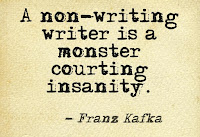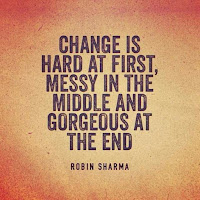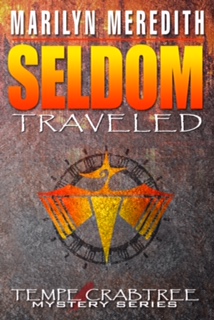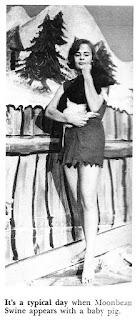by Shannon Baker and Jess Lourey
Today our guest bloggers are the amazing Shannon Baker and Jess Lourey. We’re so glad you’ve stopped by! Take it away ladies!
A big hello to the Stiletto Gang from me (Shannon Baker) and Jess Lourey. Thanks to Sparkle Abbey for inviting us to chat today. We’ve been zooming around the Internets on this crazy, month-long prelaunch blog tour and we’re tuckered out. Or, at least, I am, Jess is much younger so can probably still dance all night. I’m not nearly as pooped, though, as if I’d had to go it alone. Take my word for it, traveling with a friend is so much better. As our host(s), Sparkle Abbey, well know.
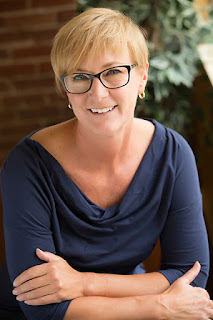 |
| Shannon Baker |
Shannon: I’m all giddy with excitement to tell you about my new Kate Fox mystery series. The first book, due out September 6th but available for preorder, is Stripped Bare. Set in the Nebraska Sandhills, it’s been called Longmire meets The Good Wife.
Jess: I’m thrilled to talk about Salem’s Cipher, my political suspense novel which is not coincidentally also releasing on September 6th and also available for preorder. Salem’s Cipher features Salem Wiley, an agoraphobic cryptanalyst who must crack codes Emily Dickinson hid 100 years earlier in order to save the first viable female presidential candidate from assassination. USA Today bestselling author Alyson Gaylin kindly calls it “a bona fide page turner.”
Shannon: Together, Jess and I have published 19 books so supposedly, we know something about writing novels. However, I’m plotting another book in the Kate Fox series and would love some expert advice. So today, we’re going to talk about plot and see if Jess can get me out of my mess.
I’ve always been a plotter, as opposed to a pantser (magicians who start on the novel highway and only see as far as their headlights but drive the whole trip that way—to paraphrase E.L. Doctorow) I know Jess is a plotter, too.
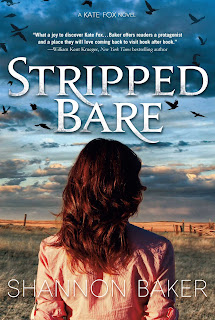
I used to use an Excel spreadsheet and plotted every scene, along with detailed notes. I found I usually jumped away from the outline but having it made me less psychotic. Slightly less.
In the past I’ve used all kinds of models, from Laura Baker’s Discovering Story Magic, to Blake Snyder’s Save the Cat, and most recently, Larry Brooks, Story Engineering.
But I really admire writers who stay more flexible and I felt like the Universe was trying to tell me to trust myself more. So with my last book, I started with way less planned out.
As it happened, I got bogged down, wound around, tangled up, and right before I got to the climactic segment, I realized I’d skipped a whole book. So I quit right where I was and now, am backtracking to the lost book.
And I’m taking more time to plot.
Jess: Shannon, I feel your pain. Or at least I see it. I don’t feel it because I’m too chicken to go without a plot, though I know I’d be happier if I was more laidback across ever area of my life. I think about writing novels much like I thought about coloring back in kindergarten, though. I liked to outline the coloring book picture with a dark line of crayon first, and then fill in the middle with a lighter version of the same shade.
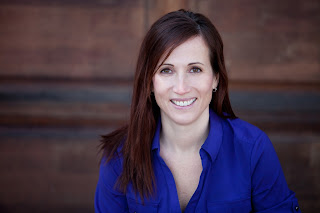 |
| Jess Lourey |
Similarly, I like to trace the shape of a book before I write it, creating an overarching rhythm by not getting into the details. I usually write a one sentence summary of each scene (and my novels average around 70 scenes), one sentence per note card, and then I lay them all out in a room to make sure they’re all necessary and all in the right order. Once I determine they are, I start writing, leaving room for surprise and rearrangement. You can do something similar to my notecard plotting exercise using Scrivener, which I like, but which I don’t entirely trust in a “I’m going to save my money in a mattress” kind of way.
So Shannon, with the book that you pantsed before realizing you’d skipped a book—was that experience worthwhile for you? Is it helping you to write the book you are writing now, or does it feel like wasted time?
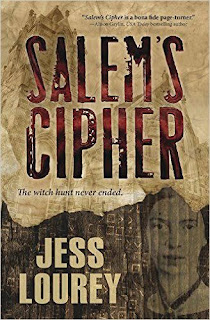 Shannon: I think all writing helps. I believe the more words a person writes, the better she gets. So, no, I don’t think it was wasted. And I will probably use much of it later on. At least I know where I don’t want to go.
Shannon: I think all writing helps. I believe the more words a person writes, the better she gets. So, no, I don’t think it was wasted. And I will probably use much of it later on. At least I know where I don’t want to go.
In my new series, Kate has several issues going on. She’s got to figure out a whole new life, after she’d thought she had it all planned out. She’s got a beloved niece on the run and is trying to figure out why. And, of course, in every book there is a crime to solve. It’s fun trying to puzzle out where she’s going next and what she needs to do, but keeping all the subplots and threads weaving together can be a challenge.
Jess, Salem has personal issues, historic, cryptologic and crime going on. That makes for a complicated story. Did your notecard method help you to keep it all running smooth?
Jess: Yep. Not only that, it kept me sane. In Salem’s Cipher, Salem Wiley, the protagonist, has to crack codes left by Emily Dickinson to find out why powerful women throughout history have been systematically killed. It’s the only way to save her mother as well as the first viable female presidential candidate the U.S. has ever seen. I had the race-against-time plot to crack the codes, the go-back-in-time plot to set up the codes as well as to develop characters, and the across-time plot to set up relationships real time in the book. That’s why I took my notecard game to a new level with this book and color- and shape-coded the cards. Colors signaled whose point of view the scene was being told from, and shape (no corners cut, one corner cut, or two corners cut) indicated which plot thread I was handling. Laying them all out on the floor was a quick and easy way to make sure nothing was getting bunched up or neglected. I have so much admiration for a writer who can weave all those threads with no map!
A little about our books:
Salem’s Cipher: Salem Wiley is a genius cryptanalyst, courted by the world’s top security agencies ever since her quantum computing breakthrough. She’s also an agoraphobe shackled to a narrow routine since her father’s suicide. When her intelligence work unexpectedly exposes a sinister plot to assassinate the country’s first viable female presidential candidate, Salem finds herself both target and detective in a modern day witch hunt. Drawn into a labyrinth of messages encrypted by Emily Dickinson and codes tucked inside the Beale Cipher a hundred years earlier, Salem begins to uncover the truth: an ancient and ruthless group is hell-bent on ruling the world, and only a select group of women stands in its way.
Stripped Bare: Just when everything seems about perfect, someone leaves the barn door open and all hell breaks loose. At least, that’s what it feels like for Kate Fox. Born and raised in the Nebraska Sandhills, smack in the middle of eight interfering siblings, related to everyone in the county by one degree of separation or less, Kate’s managed to create a her perfect life.
A shattering phone calls hits Kate like a January blizzard. A local rancher is murdered and her husband, the sheriff, is shot. When her husband is suspected of the murder, Kate vows to find the killer.
Jess and I are both giving away a copy of our new books, Salem’s Cipher and Stripped Bare. For a chance to win, share one of your plot tricks or leave a comment.
Not only that:
If you order Salem’s Cipher before September 6, 2016, you are invited to forward your receipt to salemscipher@gmail.com to receive a Salem short story and to be automatically entered in a drawing to win a 50-book gift basket mailed to the winner’s home!
If you order Stripped Bare before September 6, 2016, you are invited to forward your receipt to katefoxstrippedbare@gmail.com to receive a Kate Fox short story and be entered for a book gift basket mailed to your home.
Join us tomorrow as the Lourey/Baker Double Booked tour trips over to Mysteriastas, where we’re going to talk about recipes. (really)






